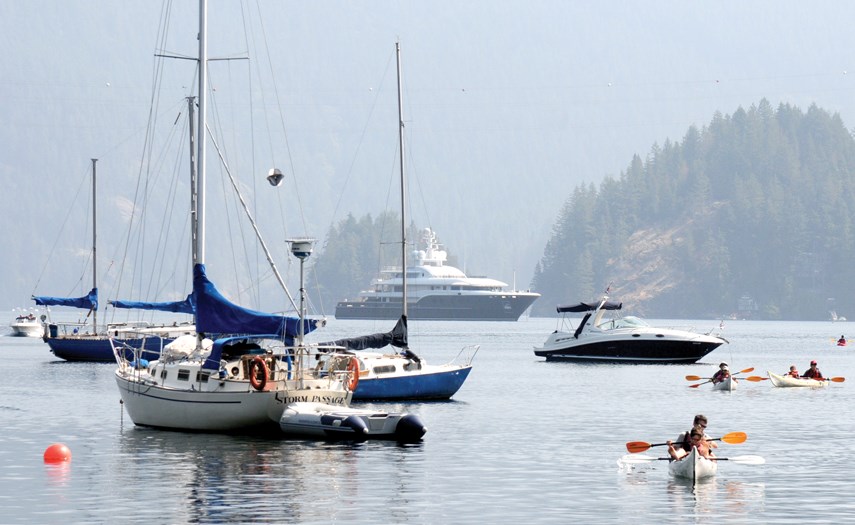How bad is the water in Deep Cove and how much should the District of North Vancouver pay to try to clean it up?
Those questions were at the forefront June 17 after Deep Cove resident Mike Perreten warned council that neighbourhood residents were getting sick from swimming.
Perreten said he suffered a blood infection and his child was diagnosed with a urinary tract infection after taking a dip in Deep Cove. While being treated at a clinic, Perreten reported seeing another neighbour awaiting treatment for a UTI.
“The situation’s just getting worse,” he told council. “It’s hot and you don’t feel good about swimming.”
The cause is raw sewage being pumped into the water, according to Perreten.
While he never thought liveaboard boaters were a big issue before, Perreten called on council to take action.
Because of its formation, sewage pumped into the cove tends to stay, noted Coun. Lisa Muri.
“It’s like a toilet . . . a broken one because it doesn’t ever flush properly,” she said, adding that a pump-out station is: “so overdue it’s ridiculous.”
While he agreed that a pump-out station could be a boon to Deep Cove, Mayor Mike Little added that he had “no idea” what the cost might be.
Council voted unanimously Monday to hold a yet-to-be scheduled meeting in Deep Cove to examine possible solutions, which could include instituting a Designated Anchorage Area, allowing the municipality to take responsibility for the “management and control” of anchored boats.
The district would likely lose more money than it could make with a DAA, according to a staff report. While the municipality currently faces “little or no liability” for derelict boats, a DAA would leave the district on the hook for disposal costs that could range from $10,000 to $30,000.
While Little sympathized with swimmers who feel they need a “double shower” after a dip in the water, he suggested a DAA may not improve water quality.
“It’s like having a non-peeing section in a pool,” he quipped.
Port Moody opted to utilize a DAA, requiring boaters to register their vessels, pay $12 per night, and limit their stays to a maximum of three weeks over a 40-day period. The Port of Vancouver handled most of the startup costs while Port Moody pays for day-to-day operations. The city’s operating costs are likely to exceed the money generated with the program, according to a district staff report.
Currently, it is unconstitutional to prohibit anchorage: “if the anchorage can occur in a safe manner and is not within shipping lanes.”
Effective July 30, the Wrecked, Abandoned or Hazardous Vessels Act is scheduled to be enacted, meaning it will be illegal for owners and operators to abandon their vessel, let their boat become a wreck due to poor maintenance. It would also be illegal sink, strand or ground a boat on purpose or to leave a vessel in poor condition in the same area – meaning a radius of three nautical miles – for more than 60 days.
While approximately a dozen “vessels of interest” were identified in Deep Cove earlier this year, none of those boats were considered derelicts, according to a harbour patrol officer.



